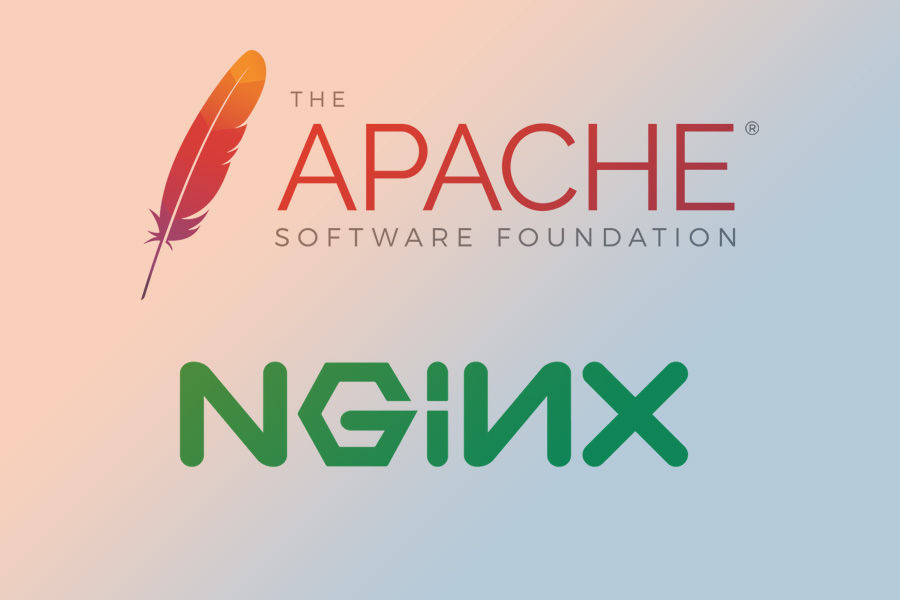[vc_row][vc_column][vc_row_inner][vc_column_inner][vc_column_text el_class=”nginx-apache”]Apache and Nginx are two of the most popular open source web servers around the globe today. When combined, they are responsible for more than 50% of internet traffic. Both solutions can comfortably handle a wide range of workloads. They can also be combined with other applications depending on the needs and preferences of the user. While they both offer benefits, each has its own unique features which makes its application suitable for any particular situation.
Apache HTTP Server

The Apache HTTP web server was developed more than twenty years ago. It is open source software and freely distributed. Apache is designed to run on all major operating systems — mostly used on Linux. It has always been a market leader since it was initially developed in 1996. However, its once mighty dominance is slowly declining, due to ever-increasing competition from upcoming technologies such as Nginx.
Apache is preferred by web administrators due to its power, widespread support and flexibility. Although Apache is a solid platform that has been mainstream for over two decades, the structure and hierarchy of the code were not built with today’s web trends and demands in mind.
Nginx

The Nginx (engine-x) web server was developed in 2002 by Igor Sysoev, a Russian developer. Just like its counterpart, it is an open source web server that can run on most operating systems.
Nginx offers a way to improve and optimize its server architecture without a massive increase in its hardware resources. Nginx uses an asynchronous, event driven single threaded architecture — a contrast to Apache’s synchronous model. The event-based framework means that it doesn’t need to spawn any new threads or processes for each unique request. This is the preferred by administrators due to its responsiveness and resource efficiency.
When it comes to performance, Nginx is faster at serving static files and uses less memory in the process, making it much more efficient.
Some of the features of Nginx include:
- Static file serving
- SSL/TLS support
- Load balancing
- Virtual hosts
- Reverse proxying
- GZIP Compression
- Access Controls
- URL rewriting
- Server-side includes
- FastCGI
- Custom logging
- Limited WebDAV
Static and Dynamic Content
Nginx cannot process dynamic content natively. This means that it has to pass through an external processor to handle PHP and other similar requests. Nginx works with php-fpm and FastCGI to process, render, and execute the workload which can then be relayed to the user.
According to many benchmark tests that have been conducted, Nginx consistently outperforms Apache and other web servers. As mentioned before, this can be attributed to Nginx consuming less memory and other server resources. Moreover, Nginx powers some of the world’s known high-traffic websites such as WordPress, Hulu, Pinterest, and Airbnb.
Putting It All Together
Both Apache and Nginx have strengths and weaknesses depending on your need. Users looking for a shared hosting environment may opt for Apache. Nginx will appeal to those looking for a VPS (Virtual Private Server) or dedicated hosting solutions.
Nginx outshines its counterpart with several advanced features such as reverse proxying for non-HTTP protocols and media streaming.[/vc_column_text][/vc_column_inner][/vc_row_inner][/vc_column][/vc_row]




